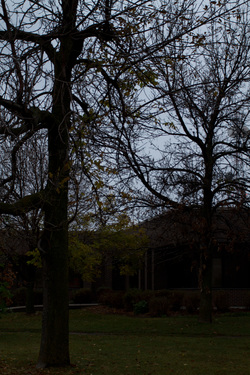
As the leaves start to turn and the nights draw in many of us are starting to look forward to log fires and crunching through woods, but for around 2 million people in the UK and Ireland it's the start of a long depressing battle;
Seasonal Affective Disorder.
It's not uncommon for people to feel lower with grey skies, cold temperatures and shorter daylight hours, but for people with SAD it has much more severe effects on their mood.
General symptoms of SAD;
- Anxiety and Panic attacks.
- inability to cope with everyday stresses.
- lack of energy/lethargic
- unexplained anger and abusive behaviour
- depression, despair, feeling tearful.
- Loss of enthusiasm for hobbies and fun
- lack in interest in Sex or physical contact.
- craving Carbohydrates and overeating incurring weight gain.
If you have suffered from this for 2 or 3 years in a row spanning from around when Autumn starts(September-November) till the spring (March-May), then the chances are you are a SAD sufferer too. (Always talk to your GP before assuming though to rule out any conditions with similar symptoms)
Why does this happen?
Well the exact reason is still unclear, but since the 80's there has been much research into it and several theories have come about from this research.
But what we do know is that the Human body is very complex and even though it has evolved over the years, our lifestyles have evolved at a quicker rate, so where as a couple of centuries ago we would have spent our days mainly working outside, today many of us spend our days in shops/offices/schools surrounding by artificial light.
some of the theories include;
Serotonin Levels
people who suffer from depression generally have lower serotonin levels especially in the winter - so it is thought that people with SAD might not have fully functioning Serotonin.
Body Clock
How many of you wake up at the end of the week a couple of minutes before the alarm goes off? Our Bodies naturally sync to our environment and when it's going right; we're eating well, sleeping well, digesting well etc are moods tend to be more stable. But as soon as something changes; we get stressed over something or work gets hectic, then everything else (eating habits, sleeping patterns) tends to alter and our moods change. So another theory is that with the changing daylight hours; suddenly waking up in the dark and leaving work in the dark our body clock gets disrupted.
Melatonin levels
This is the hormone that is responsible for making us go to sleep when it goes dark and when the sun comes up in the morning we stop producing it and wake up.
People with SAD have higher Melatonin levels and therefore they will feel more sleepy, lethargic and unenthusiastic and will probably feel like going into hibernation over the winter; well this is because it is the same hormone produced in animals too and are especially higher in those animals who do hibernate.
What can I do about it?
One of the most effective ways especially for those of you that don't want to enter the route of anti-depressants is to invest in a light box (SAD Light) which range in price from £100 - £300 on average. They are designed so that you can top your natural light levels up to summer standards (ok maybe need a bit more than this summer!!) so that it changes your hormone levels.
Getting out and about whenever you can. Perhaps if the weather permits you can go for a walk at lunchtime, spend your weekends walking on the hills or sit near a window in work. Ok so this might feel like a mission when you've got such a lack of energy and enthusiasm, but knowing that it can help overall might help you give it that extra little push out of the chair; plus if you find someone willing to get out and about with you then you can keep that social network of motivation going.
And if you're still struggling to motivate yourself and your mind is full of dark thoughts and despair then Counselling could be another option.
Talking therapies can be extremely useful in helping people cope with SAD symptoms and will look at gathering some tools to help you cope with daily stress and to live as a normal life as you can. It can also help you to look at what you are feeling and find some understanding around any underlying issues contributing to your symptoms.
I hope your winter is rich with sunshine and happy thoughts this year.
 RSS Feed
RSS Feed